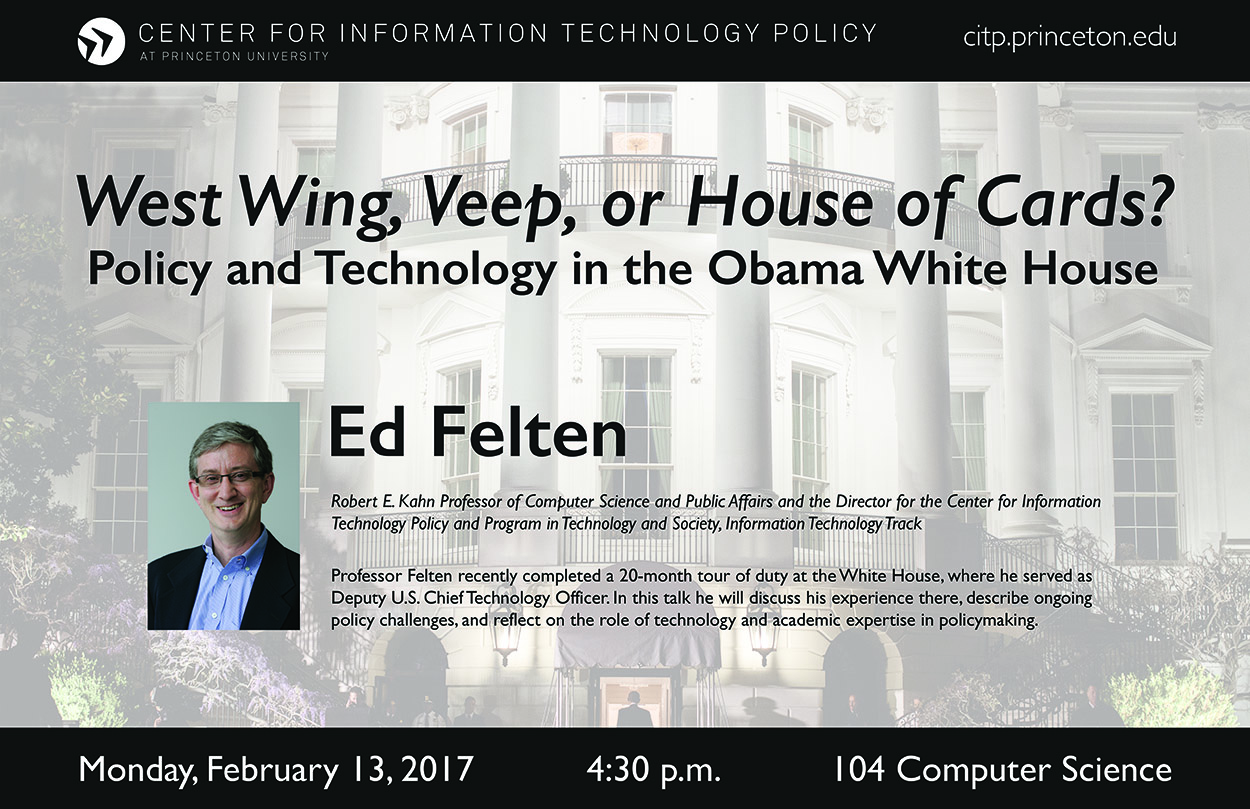Conference on Security and Privacy for the Internet of Things
Friend Center Convocation Room 35 Olden Street, Princeton, United StatesTo begin this discussion, the CITP Conference on Security and Privacy Policy for the Internet of Things (IoT) will convene experts at the intersection of technology and policy from industry, academia, and civil society to discuss the latest issues surrounding the security and privacy for the Internet of Things. Some of the topics and questions that the conference plans to address include: robustness, privacy and security.



